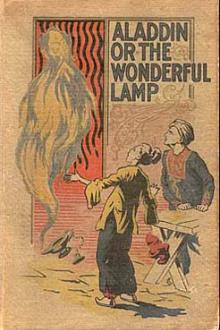The Yellow Claw by Sax Rohmer (best short novels txt) 📗

- Author: Sax Rohmer
Book online «The Yellow Claw by Sax Rohmer (best short novels txt) 📗». Author Sax Rohmer
Public curiosity respecting the nursing home in Gillingham Street, with its electric baths and other modern appliances, has by no means diminished, and groups of curious spectators regularly gather outside the former establishment of Nurse Proctor, and apparently derive some form of entertainment from staring at the windows and questioning the constable on duty. The fact that Mrs. Vernon undoubtedly came from this establishment on the night of the crime, and that the proprietors of the nursing home fled immediately, leaving absolutely no clue behind them, complicates the mystery which Scotland Yard is engaged in unraveling.
It is generally believed that the woman, Proctor, and her associates had actually no connection with the crime, and that realizing that the inquiry might turn in their direction, they decamped. The obvious inference, of course, is that the nursing home was conducted on lines which would not bear official scrutiny.
The flight of the butler, Soames, presents a totally different aspect, and in this direction the police are very active.
Soames searched the remainder of the paper scrupulously, but failed to find any further reference to the case. The second Scottish stimulant had served somewhat to restore his failing courage; he congratulated himself upon taking the only move which could have saved him from arrest; he perceived that he owed his immunity entirely to the protective wings of Mr. King. He trembled to think that his fate might indeed have been that of the man arrested at Olton; for, without money and without friends, he would have become, ere this, just such an outcast and natural object of suspicion.
He noted, as a curious circumstance, that throughout the report there was no reference to the absence of Mrs. Leroux; therefore—a primitive reasoner—he assumed that she was back again at Palace Mansions. He was mentally incapable of fitting Mrs. Leroux into the secret machine engineered by Mr. King through the visible agency of Ho-Pin. On the whole, he was disposed to believe that her several absences—ostensibly on visits to Paris—had nothing to do with the catacombs of Ho-Pin, but were to be traced to the amours of the radiant Gianapolis. Taking into consideration his reception by the Chinaman in the cave of the golden dragon, he determined, to his own satisfaction, that this had been dictated by prudence, and by Mr. Gianapolis. In short he believed that the untimely murder of Mrs. Vernon had threatened to direct attention to the commercial enterprise of the Greek, and that he, Soames, had become incorporated in the latter in this accidental fashion. He believed himself to have been employed in a private intrigue during the time that he was at Palace Mansions, and counted it a freak of fate that Mr. Gianapolis' affairs of the pocket had intruded upon his affairs of the heart.
It was all very confusing, and entirely beyond Soames' mental capacity to unravel.
He treated himself to a third scotch whisky, and sallied out into the rain. A brilliantly lighted music hall upon the opposite side of the road attracted his attention. The novelty of freedom having worn off, he felt no disposition to spend the remainder of the evening in the street, for the rain was now falling heavily, but determined to sample the remainder of the program offered by the “first house,” and presently was reclining in a plush-covered, tip-up seat in the back row of the stalls.
The program was not of sufficient interest wholly to distract his mind, and during the performance of a very tragic comedian, Soames found his thoughts wandering far from the stage. His seat was at the extreme end of the back row, and, quite unintentionally, he began to listen to the conversation of two men, who, standing just inside the entrance door and immediately behind him to the right, were talking in subdued voices.
“There are thousands of Kings in London,” said one...
Soames slowly lowered his hands to the chair-arms on either side of him and clutched them tightly. Every nerve in his body seemed to be strung up to the ultimate pitch of tensity. He was listening, now, as a man arraigned might listen for the pronouncement of a judgment.
“That's the trouble,” replied a second voice; “but you know Max's ideas on the subject? He has his own way of going to work; but my idea, Sowerby, is that if we can find the one Mr. Soames—and I am open to bet he hasn't left London—we shall find the right Mr. King.”
The comedian finished, and the orchestra noisily chorded him off. Soames, his forehead wet with perspiration, began to turn his head, inch by inch. The lights in the auditorium were partially lowered, and he prayed, devoutly, that they would remain so; for now, glancing out of the corner of his right eye, he saw the speakers.
The taller of the two, a man wearing a glistening brown overall and rain-drenched tweed cap, was the detective who had been in Leroux's study and who had ordered him to his room on the night of the murder!
Then commenced for Soames such an ordeal as all his previous life had not offered him; an ordeal beside which even the interview with Mr. King sank into insignificance. His one hope was in the cunning of Said's disguise; but he knew that Scotland Yard men judged likenesses, not by complexions, which are alterable, not by the color of the hair, which can be dyed, but by certain features which are measurable, and which may be memorized because nature has fashioned them immutable.
What should he do?—What should he do? In the silence:
“No good stopping any longer,” came the whispered voice of the shorter detective; “I have had a good look around the house, and there is nobody here.”...
Soames literally held his breath.
“We'll get along down to the Dock Gate,” was the almost inaudible reply; “I am meeting Stringer there at nine o'clock.”
Walking softly, the Scotland Yard men passed out of the theater.
XIX THE LIVING DEAD
The night held yet another adventure in store for Soames. His encounter with the two Scotland Yard men had finally expelled all thoughts of pleasure from his mind. The upper world, the free world, was beset with pitfalls; he realized that for the present, at any rate, there could be no security for him, save in the catacombs of Ho-Pin. He came out of the music-hall and stood for a moment just outside the foyer, glancing fearfully up and down the rain-swept street. Then, resuming the drenched raincoat which he had taken off in the theater, and turning up its collar about his ears, he set out to return to the garage adjoining the warehouse of Kan-Suh Concessions.
He had fully another hour of leave if he cared to avail





Comments (0)